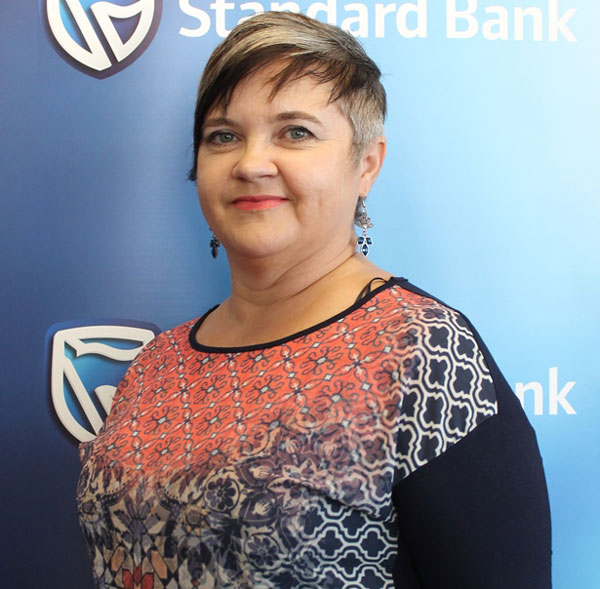
Bank observes World Cancer Day

Although World Cancer Day was celebrated on 4 February and may be an afterthought for many now, Standard Bank’s Employee Wellness Consultant Cicile Fouche this week said it is something that everyone should be sentient of all the time.
Standard Bank has been steadfast in its support on the fight against cancer, with the bank donating N$120,000 annually to the Cancer Association of Namibia for the ‘Save your Skin’ Campaign.
“Every year, 8.2 million people die from cancer, an estimated 13% of all deaths worldwide. There are a 100 cancer types which exist, each requiring a unique diagnosis and treatment and unfortunately there is a 70% in new cases of cancer expected over the next 2 decades,” Fouche said explaining the gravity of the situation.
While there are countless numbers of cases in which a cancer diagnosis ends fatally, early detection plays a huge rate in curbing that. However, that can only be done if you take note of the various symptoms.
“The signs and symptoms caused by cancer will vary depending on what part of the body is affected. Some general signs and symptoms associated with, but not specific to, cancer, include: fatigue, a lump or area of thickening that can be felt under the skin, weight changes, including unintended loss or gain and skin changes, such as yellowing, darkening or redness of the skin, sores that won’t heal, or changes to existing moles,” Fouche said.
Additional signs and symptoms include (but are not limited to) changes in bowel or bladder habits, persistent cough or trouble breathing, difficulty swallowing, hoarseness, persistent indigestion or discomfort after eating, persistent, unexplained muscle or joint pain, persistent unexplained fevers or night sweats and unexplained bleeding or bruising
“It is often said that prevention is better than cure, the same applies with cancer in some cases. More than 30% of cancer deaths can be prevented by modifying or avoiding key risk factors,” Fouche explained.
The factors include tobacco use, being overweight or obese, unhealthy diet with low fruit and vegetable intake, lack of physical activity, alcohol use, sexually transmitted HPV-infection, infection by HBV, ionizing and non-ionizing radiation, urban air pollution and indoor smoke from household use of solid fuels.
“Make an appointment with your doctor if you have any persistent signs or symptoms that concern you. If you don’t have any signs or symptoms, but are worried about your risk of cancer, discuss your concerns with your doctor. Ask about which cancer screening tests and procedures are appropriate for you,” Fouche concluded.












































